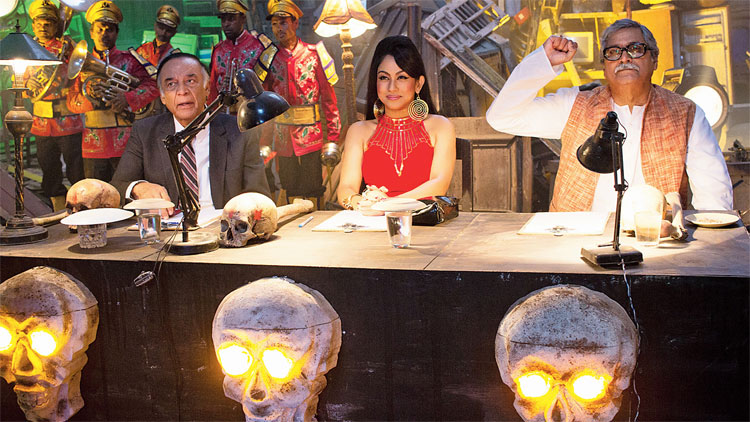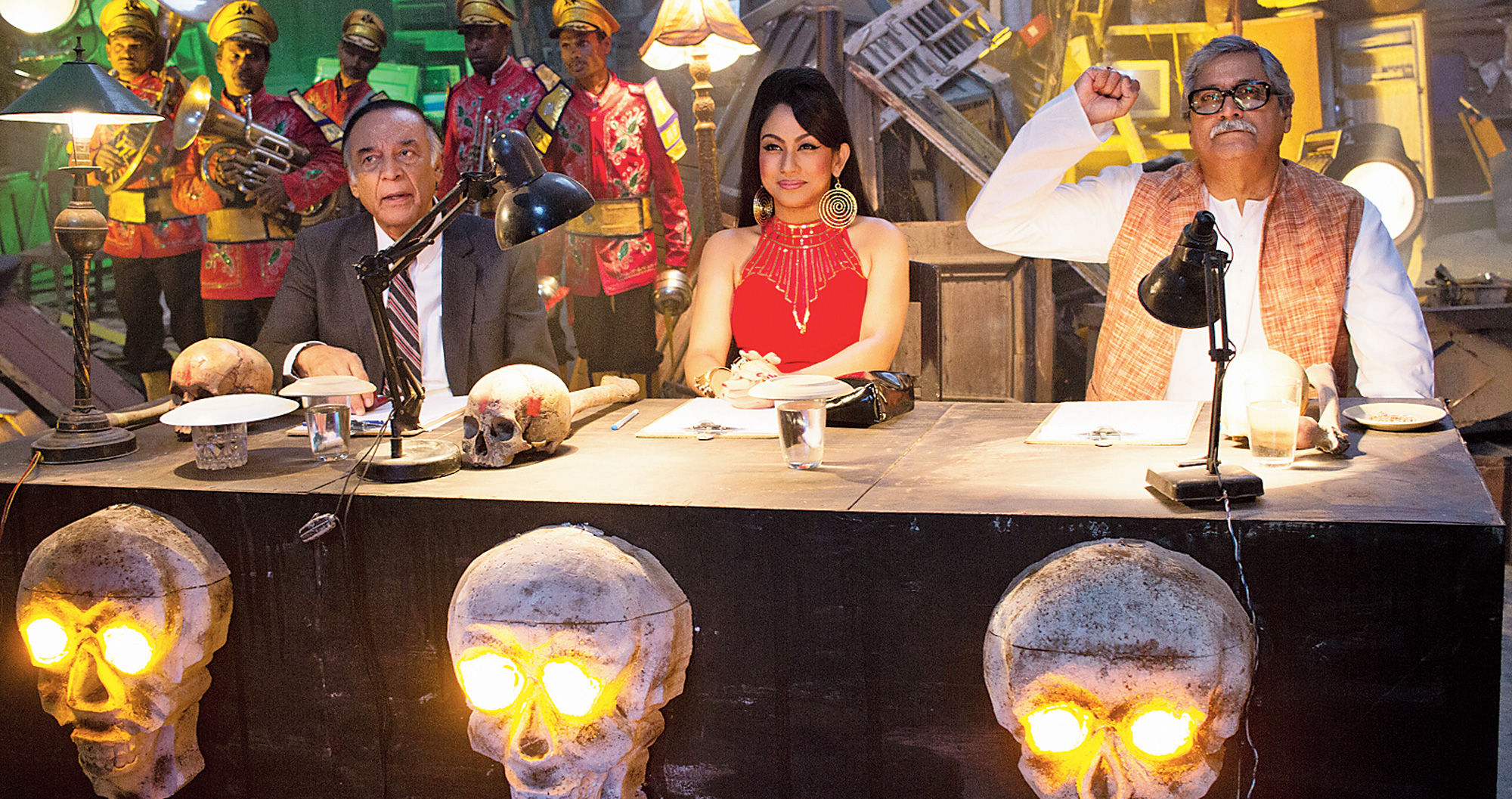Spirits are seldom malevolent. Malevolence seems to be the monopoly of those made up of flesh and blood. A film on ghosts has been taken off theatre screens without adhering to due process. Initially, it was all quite mysterious, even spooky. Nobody quite knew why theatres around the city stopped showing Bhobishyoter Bhoot. But the mystery cleared a bit after the producer and the director made public a missive that they had received from an officer of the state detective department. The makers of the film had been asked to arrange for a screening lest the film — some say it is a political satire — ruffled the feathers in some influential constituencies. The request from the police — was it not more of a threat? — is unwarranted. The law of the land makes it clear that once a film receives the clearance of the Central Board of Film Certification, a statutory censorship and classification unit functioning under the aegis of the ministry of information and broadcasting, there is no need for a special screening for the police. Yet, theatre owners and those in charge of multiplexes refused to adhere to the law. Their fear of the shadowy powers is undoubtedly greater than that of ghosts.
Unfortunately, interventions by the State in matters of creative freedom are common in this democracy. Bengal, which claims to honour pluralism in thought and deed, too, has had a long tradition of curbing the freedom of expression. There were several instances of plays and films being given the stick when the Left Front was in power. It is unfortunate that the fate of creative licence for artists has not changed much in spite of power changing hands in Bengal. Such a transgression on the part of the administration is even more hypocritical at a time when the Trinamul Congress, the police’s political master, has been protesting against — quite rightly — the high-handedness of the Bharatiya Janata Party that is cracking the whip at the Centre. Politicians of all colours are particularly allergic to satire. Exceptions — the Congress president had directed his party not to press for a ban on The Accidental Prime Minister — are a handful. This could be because artists have always held up a mirror to those in power. The police’s righteous claim to be the guardian of public sentiments in this instance is equally frivolous. Perhaps they should get on with their jobs, upholding the law instead of undermining it. Adult citizens in a democracy need not be taught what they can, or cannot, watch.











